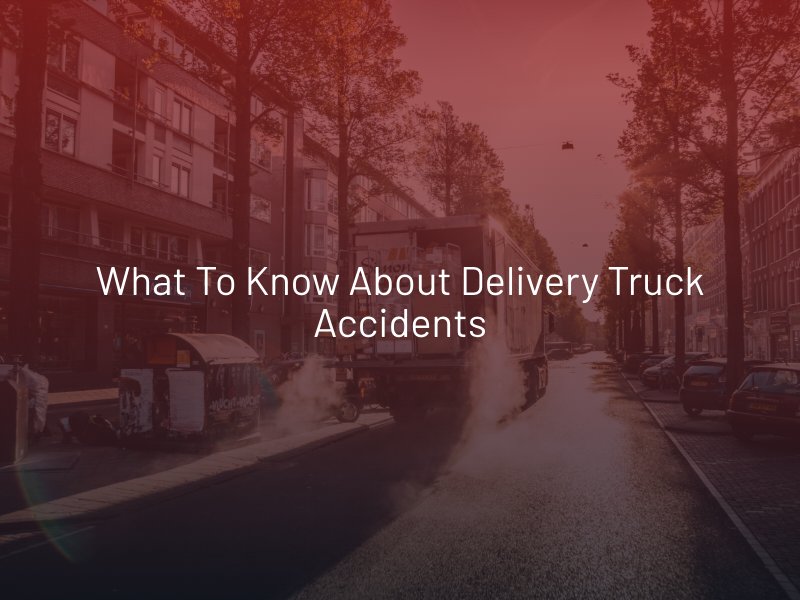What to Know About Delivery Truck Accidents
Delivery truck accidents are common, especially since the pandemic hit and more delivery trucks are on the road than ever before. Victims are entitled to compensation after a collision with a delivery truck, but these claims are often more complicated, making it harder to obtain the compensation they deserve.

Potential Issues with Delivery Truck Accident Claims
In an attempt to limit liability for accidents, many commercial delivery carriers avoid hiring employees and instead use “independent contractors” to deliver packages. Therefore, when large companies such as UPS, FedEx, or Amazon contract with separate entities, they will not be vicariously liable for a collision since the drivers are not employees. Instead, the driver will be responsible for their actions.
As a result, sorting out liability can be incredibly complex and challenging after a delivery truck accident. In many cases, multiple parties will be at-fault, which also means dealing with several insurance companies. Hiring a truck accident attorney experienced with these types of cases can be very beneficial and will significantly increase your chance of recovering fair compensation. They will investigate whether the driver was an employee and working at the time of the accident, who can be held legally liable, and will collect the evidence you need to hold them accountable.
What is Vicarious Liability?
Vicarious liability is often used in cases involving the negligent actions of employees. Employers can be held vicariously liable for employees’ actions if they cause injury to another person. However, the employee must have been considered working at the time and acting within the scope of their employment. For example, if a UPS causes an accident en route to deliver a package, UPS will be liable for the resulting damages. On the other hand, if the UPS driver was on their way to do a personal errand, the driver may be responsible rather than UPS since they were not performing a job duty when the crash occurred.
How Fault Is Determined In Delivery Truck Accidents
Determining fault in a delivery truck accident case is rarely ever straightforward due to the various parties that are potentially liable. For example, the truck driver, the truck’s owner, the company leasing the truck from the owner, and possibly other third parties.
How an Insurance Company Determines Fault
The insurance companies will assign an adjuster to determine who caused the accident. There will likely be more than one adjuster involved in the process since each party’s insurance company will conduct its own investigation. The adjuster will determine whether the delivery truck driver was working at the time, look at accident scene evidence, the police report, eyewitness statements, medical records, and will verify each parties’ insurance policies and coverage amounts. Oftentimes, the adjuster will assign a percentage of fault to each party involved.
How the Court Decides Fault
Most delivery truck accident cases are settled outside of court. However, if your case goes to trial, the court will determine who was at fault by first examining the evidence, hearing each side’s arguments, and witnesses’ testimony. After which, they will decide which party was negligent and is liable for the other’s losses. The parties commonly hire expert witnesses to testify to who caused the accident and the extent of injuries.
If the delivery company argues that the driver was not working at the time the accident occurred, the court will typically consider the following factors:
- The driver’s intent.
- The time and place of the accident.
- The driver’s amount of freedom with their work schedule and whether they could determine when to perform job duties.
If a delivery truck driver is found to have been performing a job duty and at fault for the accident, their employer will be liable.